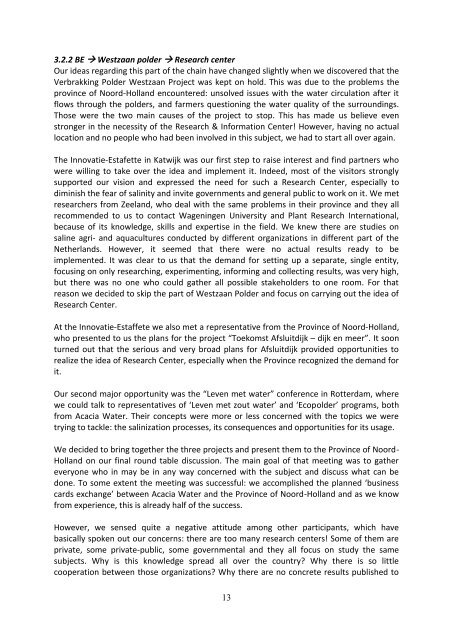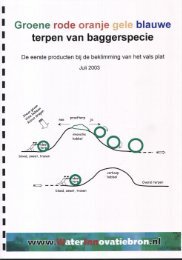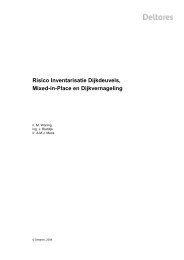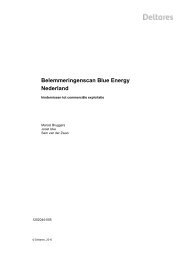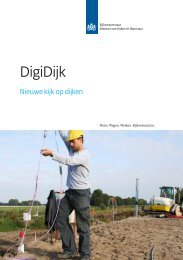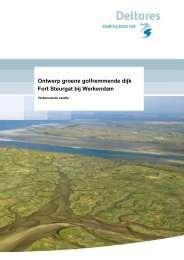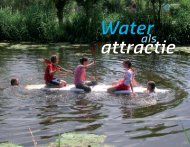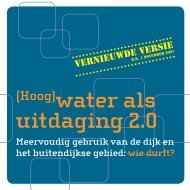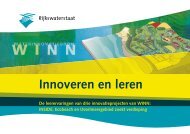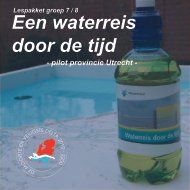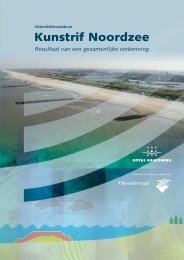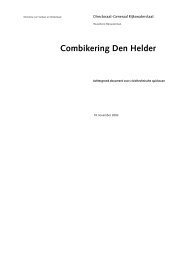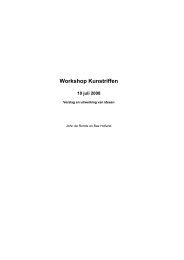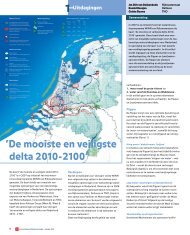Creating opportunities to adapt to climate change through innovative ...
Creating opportunities to adapt to climate change through innovative ...
Creating opportunities to adapt to climate change through innovative ...
Create successful ePaper yourself
Turn your PDF publications into a flip-book with our unique Google optimized e-Paper software.
3.2.2 BE Westzaan polder Research centerOur ideas regarding this part of the chain have <strong>change</strong>d slightly when we discovered that theVerbrakking Polder Westzaan Project was kept on hold. This was due <strong>to</strong> the problems theprovince of Noord-Holland encountered: unsolved issues with the water circulation after itflows <strong>through</strong> the polders, and farmers questioning the water quality of the surroundings.Those were the two main causes of the project <strong>to</strong> s<strong>to</strong>p. This has made us believe evenstronger in the necessity of the Research & Information Center! However, having no actuallocation and no people who had been involved in this subject, we had <strong>to</strong> start all over again.The Innovatie-Estafette in Katwijk was our first step <strong>to</strong> raise interest and find partners whowere willing <strong>to</strong> take over the idea and implement it. Indeed, most of the visi<strong>to</strong>rs stronglysupported our vision and expressed the need for such a Research Center, especially <strong>to</strong>diminish the fear of salinity and invite governments and general public <strong>to</strong> work on it. We metresearchers from Zeeland, who deal with the same problems in their province and they allrecommended <strong>to</strong> us <strong>to</strong> contact Wageningen University and Plant Research International,because of its knowledge, skills and expertise in the field. We knew there are studies onsaline agri- and aquacultures conducted by different organizations in different part of theNetherlands. However, it seemed that there were no actual results ready <strong>to</strong> beimplemented. It was clear <strong>to</strong> us that the demand for setting up a separate, single entity,focusing on only researching, experimenting, informing and collecting results, was very high,but there was no one who could gather all possible stakeholders <strong>to</strong> one room. For thatreason we decided <strong>to</strong> skip the part of Westzaan Polder and focus on carrying out the idea ofResearch Center.At the Innovatie-Estaffete we also met a representative from the Province of Noord-Holland,who presented <strong>to</strong> us the plans for the project “Toekomst Afsluitdijk – dijk en meer”. It soonturned out that the serious and very broad plans for Afsluitdijk provided <strong>opportunities</strong> <strong>to</strong>realize the idea of Research Center, especially when the Province recognized the demand forit.Our second major opportunity was the “Leven met water” conference in Rotterdam, wherewe could talk <strong>to</strong> representatives of ‘Leven met zout water’ and ‘Ecopolder’ programs, bothfrom Acacia Water. Their concepts were more or less concerned with the <strong>to</strong>pics we weretrying <strong>to</strong> tackle: the salinization processes, its consequences and <strong>opportunities</strong> for its usage.We decided <strong>to</strong> bring <strong>to</strong>gether the three projects and present them <strong>to</strong> the Province of Noord-Holland on our final round table discussion. The main goal of that meeting was <strong>to</strong> gathereveryone who in may be in any way concerned with the subject and discuss what can bedone. To some extent the meeting was successful: we accomplished the planned ‘businesscards ex<strong>change</strong>’ between Acacia Water and the Province of Noord-Holland and as we knowfrom experience, this is already half of the success.However, we sensed quite a negative attitude among other participants, which havebasically spoken out our concerns: there are <strong>to</strong>o many research centers! Some of them areprivate, some private-public, some governmental and they all focus on study the samesubjects. Why is this knowledge spread all over the country? Why there is so littlecooperation between those organizations? Why there are no concrete results published <strong>to</strong>13


